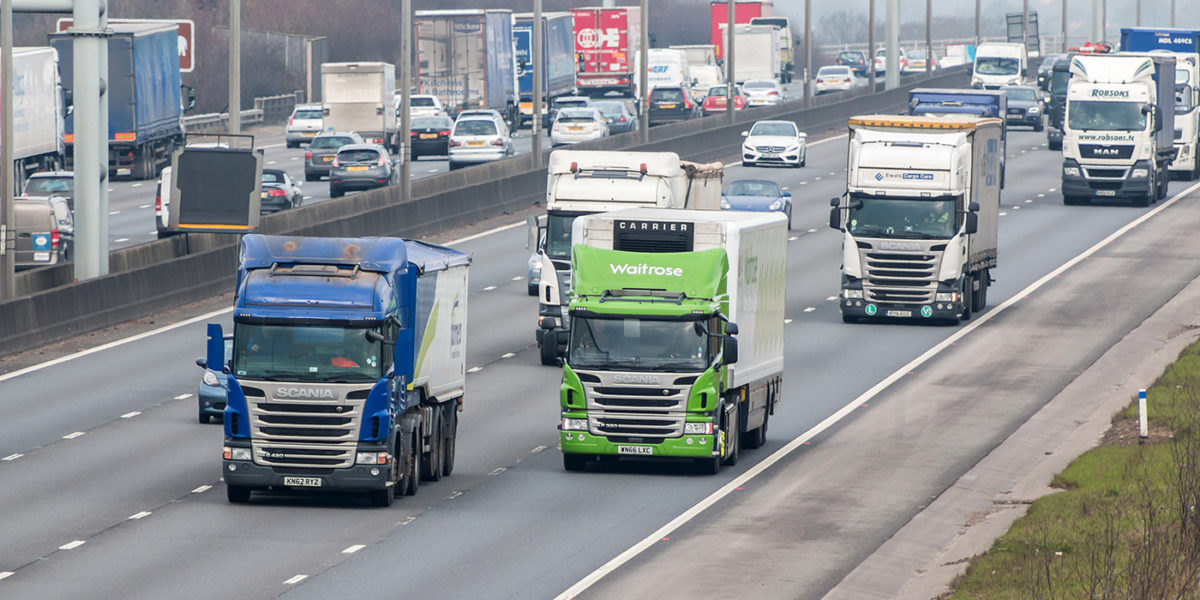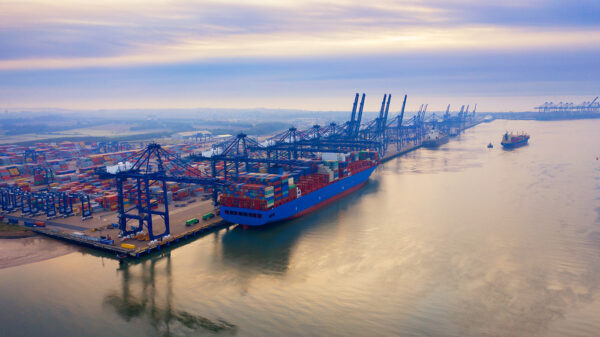
Why Logistics Recruitment Is Crucial to the UK’s Economic Prosperity
‘Bank of England expects UK to fall into longest ever recession.’ That was the headline millions of Britons found on BBC.co.uk on 3rd November 2022. Now a headline is designed to get attention. Startle. Provoke action. But even a cursory glance at that headline and most people will read the article, if nothing else to figure out what is going on!
Andrew Bailey, Governor of the Bank of England, elaborated that the mini budget had ‘damaged the UK’s reputation’ and warned of the ‘tough road ahead’ for UK households as the Bank of England tackles soaring inflation, the cost-of-living crisis, the fallout from the Ukraine war.
All sounds rather depressing. Like we’re all going to suffer. That economic doomsday is upon us. That the time has come to cease any frivolous spending. Switch of the heating. Exist on bread and water. Lentils. Rice. Pasta. Soup. Invest in thermal vests, long underwear, water bottles to survive the long, chilly winter months.
This, of course, is hyperbole. A paragraph that’s written to get attention. Startle. Provoke action.
We might be heading towards the dreaded ‘R’ word ‘recession.’ In fact, if recession is defined as a period of economic contraction lasting two quarters or six months we’re already in one. But it’s hardly time to sound the sound the alarm. We’ve been here before. More than once. Does anyone remember the Great Recession of 2008?
Is everyone predicting economic Armageddon? Nope. The Office for Budgetary Responsibility (OBR) had forecast economic growth of 3.8%. * Now, the Office will publish their latest outlook on Thursday 17th November so only time will tell if that figure changes.
In their own economic outlook, The International Monetary Fund (IMF) predicted that the UK economy would grow by 3.7% – the joint strongest in the G7 group of industrialised nations. *
Recruitment Stats and the UK Economy
Let’s get this out of the way upfront: no one has a crystal ball to see into 2023 and 2024. Forecasting is guesswork. Educated guesswork, but still guesswork. We simply don’t know what will happen in the coming months and years. What we do know is that recruitment is a major driver of UK economic performance.
Recruitment adds almost £86 billion (or the equivalent of 4.3% of the GDP) in gross value to the UK economy. Recruiters find their candidates a new permanent job every 21 seconds. * In many sectors, logistics and shipping included, employers rely on recruiters to find them the candidates they need to thrive in a prosperous or challenging economic climate.
Now, here’s the big secret that the mainstream media seldom mention when writing about the economy: not all companies struggle in a recession. In fact, many businesses thrive in a challenging economy.
Build a client list of businesses who are resilient to economic change and recruiters will successfully navigate any economic contraction. We’re thinking life sciences, compliance, financial crime, disruptive tech and – and surprise, surprise, shipping and logistics.
Don’t forget that recruitment bolsters the economy by helping to cultivate a flexible, robust labour market. Stats are just stats. They never tell the whole story. This needs context. And recruiters who work tirelessly to put candidates in the right roles – like LME’s recruiters – are on the ground, they’re the troops helping the economy to thrive.
An Important Role in Our Future Development
Logistics needs to be included in all future plans for urban and rural developments, to maximise the impact it can provide to all parts of the economy, and Logistics UK is calling on government to ensure (the sector) is considered as an integral part of future national and local planning strategies.”
When all’s said and done, Logistics (and shipping) links global trade to British businesses and their customers. Maritime ports, airports, even rail and road distribution centres are paramount to an efficient supply chain and therefore drivers of economic growth.
To maximise these opportunities and support seamless supply chains, the UK government must take the necessary steps to solidifying a robust logistics infrastructure. Addressing any skills shortages will be paramount to securing the UK’s economic prosperity. This should be a key consideration for Rishi Sunak’s government over the next few years.
The Role of Recruitment
Businesses and their hierarchy sectors thrive when they have a highly skilled, motivated, ambitious, happy workforce. It’s the role of recruiters to identify and place candidates with the knowledge, experience, skills and personal attributes to add much value to their employer, whatever their role.
From warehouse operatives to the CEO of a multinational enterprise, recruiters make decisions that affect the performance of an entire sector. Finding the right candidate for the right role is paramount.
Now, of course, there are sector-wide levels of influence. But everyone, regardless of their role, should feel valued. They’re all part of a team. This is the power and, more importantly, the role of recruitment – to empower people to be the best they can be and by extension building a robust sector.
As we’ve seen, the importance of the logistics sector to the UK economy is clear. Therefore, the importance of sound recruitment across the entire sector cannot be overstated.
Think about it, what would happen if there was a shallow candidate pool across the logistics sector?
It’s more important than ever to secure future success with solid recruitment.
Resources:






